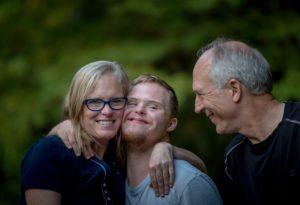
A guardian is a surrogate decision-maker appointed by the court to make either personal and/or financial decisions for a minor or for an adult with mental or physical disabilities.
Adult guardianship is the process by which the court finds an individual incapacitated and unable to make their own decisions. The court will then give the right to make decisions to another qualified person (the guardian) for the incapacitated individual (the ward).
Florida law allows both voluntary and involuntary guardianships. A voluntary guardianship may be established for an adult who, though mentally competent, is incapable of managing his or her own estate and who voluntarily petitions for the appointment.
Florida law provides for limited as well as plenary adult guardianship. A limited guardianship is appropriate if the court finds the ward lacks the capacity to do some, but not all, of the tasks necessary to care for his or her person or property; and if the individual does not have legal documents for the planning of their life such as a power of attorney, etc.. A plenary guardian is a person appointed by the court to exercise all delegable legal rights and powers of the adult ward after the court makes a finding of incapacity.
Guardian Advocacy
A qualified family member, caregiver, or friend may apply to be Guardian Advocate of the Person, the Property or both. A Guardian Advocate of the Person can seek to make personal decisions, including determining residence, consenting to medical or mental health treatment, and making social decisions. A Guardian Advocate of Property can ask the court to make property decisions, like contracting, suing and defending lawsuits, and managing property or making gifts. Generally, both can request the right to seek government benefits or act as representative payee.
Who Can Be a Guardian?
A person is qualified to serve as a guardian in Florida if he or she:
- Is over the age of 18 years of age; and
- Is a Florida resident; or
- Is a non-resident who is:
- Related by direct descent to the ward;
- A legally adopted child or adoptive parent of the ward;
- A spouse, brother, sister, uncle, aunt, niece, or nephew of the ward, or someone related by lineal consanguinity to any such person; or
- The spouse of a person otherwise qualified above; and
- Has never been convicted of a felony.



